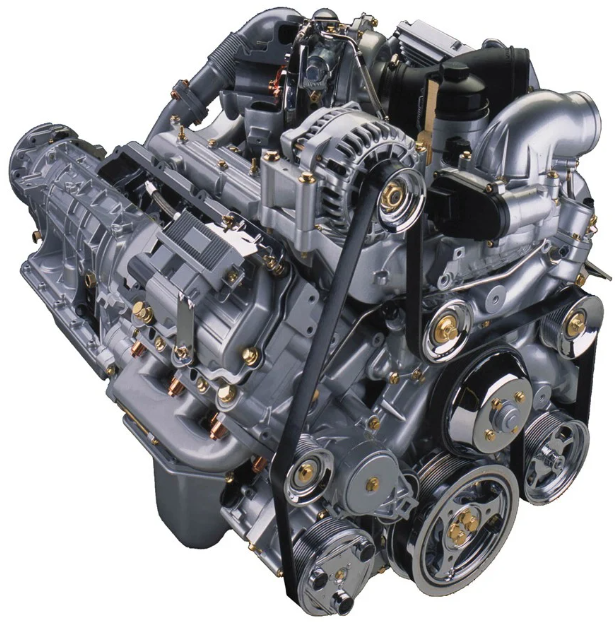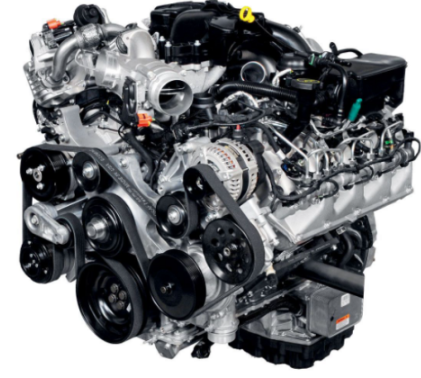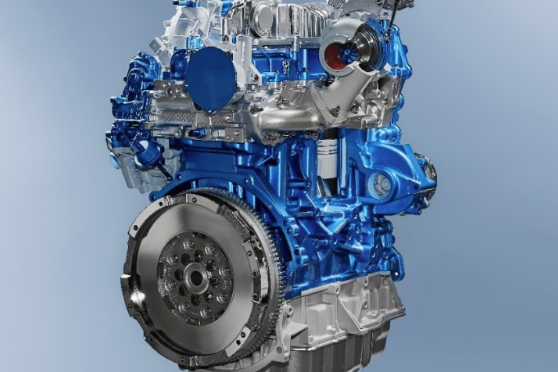Ford Motor Company is a well-known American global automaker headquartered in Dearborn, Michigan. For this reason, many users wonder about Ford Diesel engines to avoid. The company’s car and truck models are known as “Fords,” while its diesel engines are called Powerstrokes.
It is an essential fact that a vehicle’s engine acts much like its brain; therefore, choosing only the best in terms of reliability should be paramount for any driver. Unfortunately, there have been reports about specific years of Ford’s diesel engine not performing up to expectations which could lead to costly repairs or replacements. For this reason, consumers should research carefully before selecting their model year to make an informed decision and avoid any potential problems.
👀Look at this:
Ford Diesel Engines To Avoid (List Of Year)
When Ford introduced the 6L and 6.7L diesel engines, significant flaws were discovered, which could cause potential buyer risks. It is essential to be aware of the potential issues before purchasing to avoid any unforeseen complications or problems with these engines.
- 2003 -2007
- 2011 -2014
Worst Years Of Ford Diesel Engines
- 2003 to 2007
Navistar and Ford have been engaged in legal conflict due to the poor quality of diesel engines from model years 2003 to 2007. These engines are deemed so unreliable that prospective buyers should avoid them altogether.
What Makes These Ford Diesel Engine Years Worth Avoiding?
When choosing the proper diesel Ford truck for their needs, potential buyers should consider all available options. Each model offers its features and drawbacks that must be considered before deciding. Knowing these pros and cons can help them make an informed choice when selecting the best option to suit their requirements.
2003 To 2007 Powerstroke 6.0L Problems

The Ford SuperDuty diesel truck featured the 6.0L Powerstroke engine from 2003 to 2007, but this model experienced some serious issues due to the manufacturer’s factory. The emission system of the EGR was a significant contributor, which is why these cars are known as “six leakers” because of their numerous leaks. From oil coolers and EGR coolers to HPOP problems, many potential mechanical failures could occur in this engine model.
It is well-documented that 6.0L Powertrucks have experienced a variety of issues throughout the years, with each year displaying its own unique set of problems.
| Year | Common problem |
| 2003 | Turbo failure(VGT vanes sticking)Leaking oil under turboFICM-related rough idle |
| 2004 | The EGR cooler’s rectangular form is restrictive. A clogged oil drain tube on the turboInternal turbo grooves are missing (VGT valves stuck) |
| 2005 | The EGR cooler’s rectangular form is restrictive. A clogged oil drain tube on the turboInternal turbo grooves are missing (VGT valves stuck)O-ring failure in oil rail plugHPOP oil leaks from the STC connection |
| 2006 | The EGR cooler’s rectangular form is restrictive—O-ring failure in oil rail plug Turbo failure. |
| 2007 | The EGR cooler’s rectangular form is restrictive—O-ring failure in the oil rail plug. |
Documentation of coolant leaks, head gasket failure, oil cooler problems, injector harness wear, and FICM harness wear on all 2003-2007 models has been recorded.
2011 To 2014 Powerstroke 6.7L Problems

The 6.7L SuperDuty Ford diesel engine, available from 2011 to 2014, has been known to experience frequent failures of the EGR, turbo, and emission systems. In addition, injection pump issues, ETG sensor problems, and cooler clogs have all been reported as common occurrences with this engine model.
The problems include:
Failure of Injection Pump
It was found that 6.7L Power Stroke engines with an injection pump were vulnerable before 2020.
Leaks and Defective Bearings
Early versions of the oil burner can suffer from several issues, such as damaged glow plugs which can be fatal, and leaks due to defects in the primary stock radiator or at the turbocharger’s coolant input. Furthermore, ceramic ball bearings within the turbo (2011-2012 engines) also pose risks that should not be overlooked.
💥
EGR Cooler Problems
These 6.7L Power Stroke engines have a surprisingly high level of concern surrounding their EGR coolers. Although not as frequent as the issues with 6.0L and 6.4L coolers, these units can still suffer excessive soot buildup over time.
Electrical Problems
The 6.7L Power Stroke has experienced several electrical issues. However, the most notable is a recurring issue with NOx sensors on first-generation engines until 2013. When such a sensor fails, the ECM commands “Limp Mode, ” reducing the vehicle’s power output.
👀Look at this:
Which Ford Diesel Engines Years Are Safe To Buy?
- 1994 to 2004 7.3L Powerstroke
- 1999 to 2003 Ford Super Duty
- 2008 to 2010 Ford F250 or the Ford F-350
Since 2009, Ford diesel trucks have been highly regarded for their performance. Their fuel injectors are designed to last longer and prevent overheating, resulting in a great, cost-effective secondhand option.
The 7.3 Powerstroke engine is considered one of the most reliable engines ever made due to its construction and internals that guarantee longevity and dependability.
Additionally, the 6.4L Power Stroke V-8 with Siemens Common Rail injection system produces up to 550-600 hp and excellent fuel efficiency but requires more frequent repairs after 200,000 miles to maintain peak performance levels.
💥
Final Words
This article has provided an overview of the worst Ford engines to avoid for diesel models. This information is hoped to help readers make a more informed decision about purchasing a PS product from the company.
The 2003-2007 range, in particular, has been noted for its poor quality and subsequent court battle between Navistar and Ford, making it prudent to take caution before investing in such vehicles.
